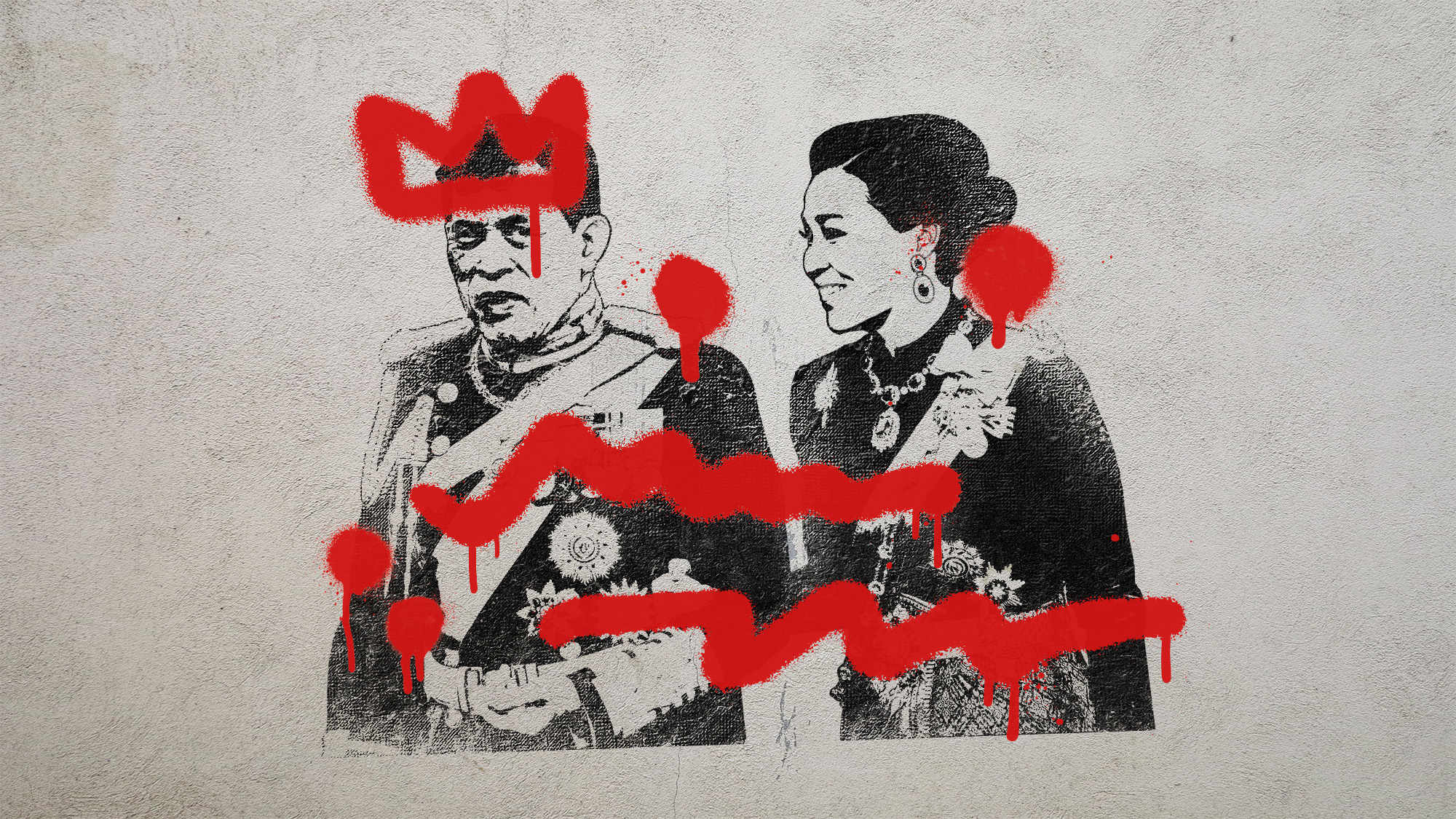An American faces years in jail for allegedly insulting Thailand's monarchy
The country's laws against insulting the monarchy are some of the world's strongest


A free daily email with the biggest news stories of the day – and the best features from TheWeek.com
You are now subscribed
Your newsletter sign-up was successful
An American lecturer in Thailand has been arrested on charges of offending the country's monarchy. Paul Chambers, who teaches political science at Thailand's Naresuan University, was detained earlier this month before being charged. The U.S. State Department is now involved, as the teacher potentially faces years behind bars.
Thailand's laws, which criminalize any criticism of Thailand's monarchy, are rarely applied against foreigners but often come with harsh prison terms. Last year, a Thai man had his sentence extended to 50 years for violating the laws. Chambers does not face 50 years, but State Department officials are concerned that he could still be locked up for a long period.
What are the accusations?
An arrest warrant was issued for Chambers relating to a "brief online description of a webinar last October about Thailand's military and police forces where Dr. Chambers was the featured speaker," said The New York Times. This description was seen as defamatory toward the king. He was then charged under Thailand's lèse-majesté laws, a set of rules prohibiting any criticism of the monarchy. While several countries have lèse-majesté laws, Thailand's are among the most strict, and "criticizing the king, queen or heir apparent can lead to a maximum 15-year prison sentence for each offense," said CNN.
The Week
Escape your echo chamber. Get the facts behind the news, plus analysis from multiple perspectives.

Sign up for The Week's Free Newsletters
From our morning news briefing to a weekly Good News Newsletter, get the best of The Week delivered directly to your inbox.
From our morning news briefing to a weekly Good News Newsletter, get the best of The Week delivered directly to your inbox.
Lawyers have denied that Chambers' actions broke these laws, which have been previously used to "punish critics of the government and the military," said The Associated Press. He "neither wrote nor published the blurb on the website," the advocacy group Thai Lawyers for Human Rights said in a translated press release. It "just feels like they wanted to deter Chambers from doing his work and research, which often touches on topics like the economics of the Thai army," Chambers' wife, Napisa Waitoolkiat, said to the AP.
How is the US responding?
The U.S. is "alarmed by the arrest of U.S. citizen Paul Chambers in Thailand" and is "closely monitoring the situation," U.S. State Department spokesperson Tammy Bruce said in a statement. The lecturer's arrest "reinforces our longstanding concerns about the use of lèse-majesté laws in Thailand," and the U.S. will "continue to urge Thai authorities to respect freedom of expression and to ensure that laws are not used to stifle permitted expression."
International organizations have also criticized Chambers' arrest. Thailand "should immediately release and drop the groundless charges against Paul Chambers," Human Rights Watch said in a statement. The country has "long used the royal insult law to abuse Thai citizens but now seems intent on violating the rights of foreigners," said Elaine Person, the Asia director at Human Rights Watch. Unlike other cases, Chambers' case "involves an extremely well-established academic whose work focuses very deeply on the civil-military relations in Thailand and whose expertise is widely acknowledged," Akarachai Chaimaneekarakate, a member of Thai Lawyers for Human Rights and part of Chambers' legal team, said to CNN.
Chambers has since been released on bail but "also had his visa revoked, an indication he could be deported soon," said the AP. If he does end up staying in the country, he could face 15 years in prison. While foreigners are rarely charged under Thailand's lèse-majesté laws, Thai citizens are often subject to its purview. Since 2020, said Thai Lawyers for Human Rights, more than 270 people have been charged under the laws.
A free daily email with the biggest news stories of the day – and the best features from TheWeek.com
Justin Klawans has worked as a staff writer at The Week since 2022. He began his career covering local news before joining Newsweek as a breaking news reporter, where he wrote about politics, national and global affairs, business, crime, sports, film, television and other news. Justin has also freelanced for outlets including Collider and United Press International.
-
 Local elections 2026: where are they and who is expected to win?
Local elections 2026: where are they and who is expected to win?The Explainer Labour is braced for heavy losses and U-turn on postponing some council elections hasn’t helped the party’s prospects
-
 6 of the world’s most accessible destinations
6 of the world’s most accessible destinationsThe Week Recommends Experience all of Berlin, Singapore and Sydney
-
 How the FCC’s ‘equal time’ rule works
How the FCC’s ‘equal time’ rule worksIn the Spotlight The law is at the heart of the Colbert-CBS conflict
-
 ‘Poor time management isn’t just an inconvenience’
‘Poor time management isn’t just an inconvenience’Instant Opinion Opinion, comment and editorials of the day
-
 ‘The forces he united still shape the Democratic Party’
‘The forces he united still shape the Democratic Party’Instant Opinion Opinion, comment and editorials of the day
-
 ‘Those rights don’t exist to protect criminals’
‘Those rights don’t exist to protect criminals’Instant Opinion Opinion, comment and editorials of the day
-
 ‘The mark’s significance is psychological, if that’
‘The mark’s significance is psychological, if that’Instant Opinion Opinion, comment and editorials of the day
-
 ‘The West needs people’
‘The West needs people’Instant Opinion Opinion, comment and editorials of the day
-
 ‘The censorious effect is the same, even if deployed covertly’
‘The censorious effect is the same, even if deployed covertly’Instant Opinion Opinion, comment and editorials of the day
-
 Vietnam’s ‘balancing act’ with the US, China and Europe
Vietnam’s ‘balancing act’ with the US, China and EuropeIn the Spotlight Despite decades of ‘steadily improving relations’, Hanoi is still ‘deeply suspicious’ of the US as it tries to ‘diversify’ its options
-
 Trump's ‘weaponization czar’ demoted at DOJ
Trump's ‘weaponization czar’ demoted at DOJSpeed Read Ed Martin lost his title as assistant attorney general
